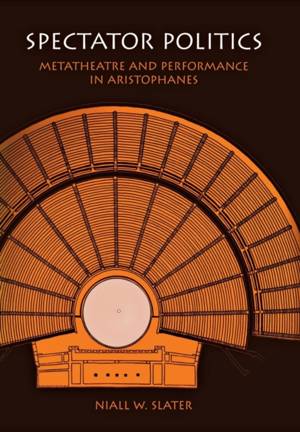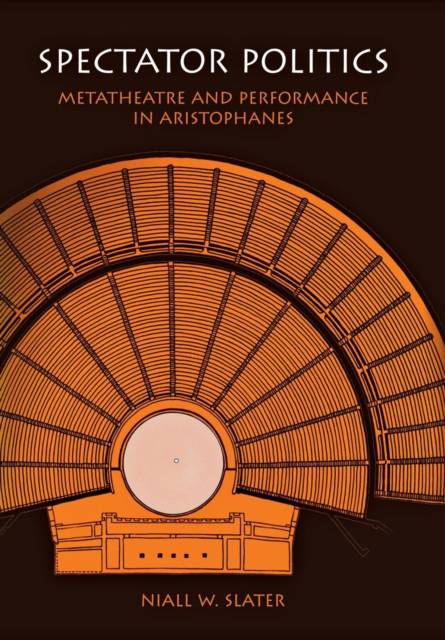
- Retrait gratuit dans votre magasin Club
- 7.000.000 titres dans notre catalogue
- Payer en toute sécurité
- Toujours un magasin près de chez vous
- Retrait gratuit dans votre magasin Club
- 7.000.000 titres dans notre catalogue
- Payer en toute sécurité
- Toujours un magasin près de chez vous
122,45 €
+ 244 points
Description
Spectator Politics is the first major study of metatheatre, or theatrically self-conscious performance, in Aristophanes. Using a reception-based performance criticism, Niall Slater elucidates the comic effectiveness of the earliest surviving comedies in the Western tradition. Slater demonstrates that Aristophanes employed metatheatre not simply to entertain but also to teach his audience how to read and interpret performance in other key public venues of the ancient democracy of Athens, such as performances in the political assembly and law courts. Aristophanes was, Slater contends, the first performance critic.
Spectator Politics shows how Aristophanes' comedy served the Athenians by helping them to become active political participants, teaching them to see through deceptive performances, whether on stage or in the political sphere. His comedies use self-conscious performance to encourage the public to move out of the role of passive consumers of spectacle and to reengage the political process. Aristophanes' critique of performance prefigures much in the performance-dominated culture of the modern American political scene. Throughout, detailed readings of the original stagings illuminate the plays for today's audiences and performers, while Slater's cultural critique provides much for those interested in Athenian democracy and its lesson for the contemporary political scene. Spectator Politics offers a salutary demonstration of the power of art to expose and resist the performance powers of would-be demagogues.Spécifications
Parties prenantes
- Auteur(s) :
- Editeur:
Contenu
- Nombre de pages :
- 376
- Langue:
- Anglais
Caractéristiques
- EAN:
- 9780812236521
- Date de parution :
- 12-06-02
- Format:
- Livre relié
- Format numérique:
- Genaaid
- Dimensions :
- 160 mm x 234 mm
- Poids :
- 703 g







